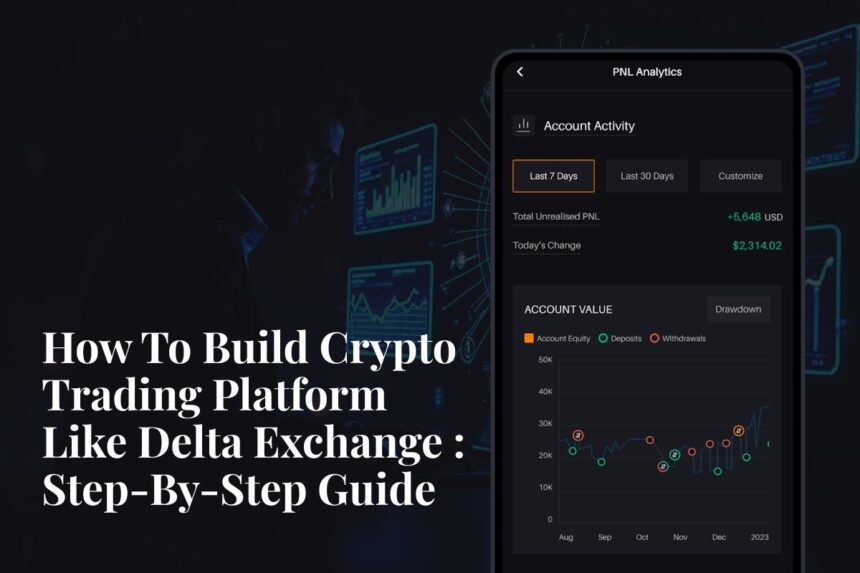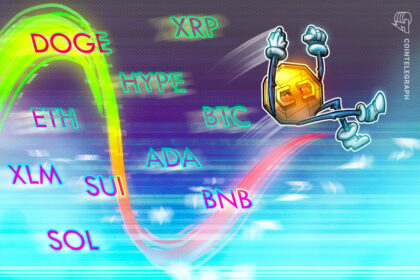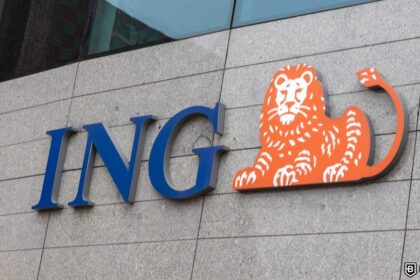Cryptocurrency trading platforms are the backbone of the digital asset economy, enabling millions to buy, sell, and trade cryptocurrencies securely and efficiently. Among the most respected names in this sector is Delta Exchange, known for its robust derivatives trading, high liquidity, and advanced risk management features. If you’re considering building a crypto trading platform like Delta Exchange, this comprehensive guide will walk you through every stage — from initial research to post-launch support — in a way that’s accessible for businesses and potential clients seeking a reliable cryptocurrency exchange development company.
Building a crypto trading platform is a complex but rewarding venture. The global appetite for digital assets continues to grow, and platforms that offer secure, user-friendly, and feature-rich trading experiences are in high demand. This guide is designed for businesses and entrepreneurs who want to understand the full process of launching a trading platform like Delta Exchange.
Delta Exchange is recognized for its high daily trading volumes, advanced derivatives products (futures, perpetual contracts, options), and a user-centric approach. Replicating such a platform allows you to:
- Tap into a growing market of professional and retail traders
- Offer advanced trading instruments beyond basic spot trading
- Attract global users with a scalable, secure, and compliant platform
- Build a sustainable business model with multiple revenue streams
Begin with thorough market research to identify your target users, analyze competitors, and define your unique selling proposition (USP). Study platforms like Delta Exchange to understand which features and trading models attract users. Key points to consider:
- Who are your primary users (retail, institutional, professional traders)?
- Which regions or countries will you target?
- What gaps exist in the current market?
- What will set your platform apart (e.g., unique derivatives, lower fees, better UI)?
A clear business plan should outline your revenue model (trading fees, withdrawal fees, premium features), marketing strategies, and growth projections.
Compliance is crucial. Cryptocurrency exchanges must operate within the legal frameworks of their chosen jurisdictions. This means:
- Selecting a country with clear crypto regulations and licensing options
- Implementing AML (Anti-Money Laundering) and KYC (Know Your Customer) protocols for user onboarding
- Establishing data protection and privacy policies
- Preparing for regular audits and regulatory reporting
Engage legal experts early to avoid costly setbacks later in the process
Selecting the right cryptocurrency exchange development company is a critical decision. A reputable partner will provide:
- Secure and scalable architecture
- Robust backend and wallet integration
- Compliance with KYC/AML standards
- Guidance from design through deployment
- Ongoing technical support and upgrades
Review portfolios, client testimonials, and case studies before making a choice.
Selecting the right cryptocurrency exchange development company is a critical decision. A reputable partner will provide:
- Secure and scalable architecture
- Robust backend and wallet integration
- Compliance with KYC/AML standards
- Guidance from design through deployment
- Ongoing technical support and upgrades
Review portfolios, client testimonials, and case studies before making a choice.
You can either:
- Build a custom platform: Offers maximum flexibility and control, but requires more time and investment.
- Opt for a white-label solution: Faster and more cost-effective, but may limit customization and scalability.
White-label solutions are ideal for quick market entry, while custom builds are better for long-term growth and unique features.
A robust architecture is the backbone of a reliable trading platform. Key components include:
Plan for scalability (horizontal scaling, database sharding) and security (encryption, cold storage)
Your platform should include the following essential features to match Delta Exchange’s standards:
- User Registration & KYC: Simple onboarding with identity verification
- Spot & Derivatives Trading: Support for futures, perpetual contracts, and options
- Advanced Order Types: Market, limit, stop, trailing stop
- Wallet & Fund Management: Multi-currency wallets, real-time balances, easy deposits/withdrawals
- Real-Time Charting & Market Data: Live price feeds, historical data, technical indicators
- Risk Management Tools: Margin calls, position limits, insurance fund
- Admin Panel: User management, transaction monitoring, compliance tools
- Security Features: 2FA, cold wallet storage, anti-DDoS, encryption
A clean, intuitive interface is essential for user retention. Focus on:
- Responsive design for web and mobile
- Real-time data display and order book updates
- Dark/light themes and multilingual support
- Easy navigation for both beginners and experienced traders
The trading engine is the heart of your platform. It must:
- Match buy and sell orders instantly
- Handle high transaction volumes with low latency
- Support multiple trading pairs and derivatives
Wallet integration should allow secure deposits, withdrawals, and internal transfers across various cryptocurrencies.
The admin panel enables compliance monitoring, user management, and real-time analytics for platform operators.
Security cannot be compromised. Implement:
- Two-Factor Authentication (2FA)
- Cold wallet storage for the majority of user funds
- End-to-end encryption for sensitive data
- Anti-DDoS and firewall protection
- Regular security audits and penetration testing
Before going live, conduct comprehensive testing:
- Unit Testing: Validate individual components
- Integration Testing: Check how components interact
- Load Testing: Simulate high-traffic scenarios
- Penetration Testing: Identify and fix vulnerabilities
- User Acceptance Testing (UAT): Collect feedback from beta testers
Deploy your platform on a reliable cloud infrastructure (AWS, Google Cloud) or on-premises servers. Set up:
- Monitoring tools for performance and security
- Customer support channels for user queries
- A launch strategy involving marketing, community engagement, and partnerships
Deploy your platform on a reliable cloud infrastructure (AWS, Google Cloud) or on-premises servers. Set up:
- Monitoring tools for performance and security
- Customer support channels for user queries
- A launch strategy involving marketing, community engagement, and partnerships
Estimated costs vary depending on features and customization:
Ongoing costs for support, compliance, and upgrades should also be budgeted.
Building a crypto trading platform is a major undertaking that requires expertise, security, and ongoing support. Codezeros specializes in end-to-end cryptocurrency exchange development, offering:
- Custom and white-label solutions
- Advanced trading engines and wallet integration
- Full compliance with global regulations
- Scalable, secure, and high-performance architecture
- Dedicated post-launch support and upgrades
Launching a crypto trading platform like Delta Exchange demands careful planning, technical expertise, and a strong focus on compliance and security. By following these steps and partnering with a trusted development company, you can enter the booming crypto market with confidence.
Ready to build your own crypto trading platform? Contact Codezeros today to discuss your project requirements and get started with expert cryptocurrency exchange development.
Before you go:










